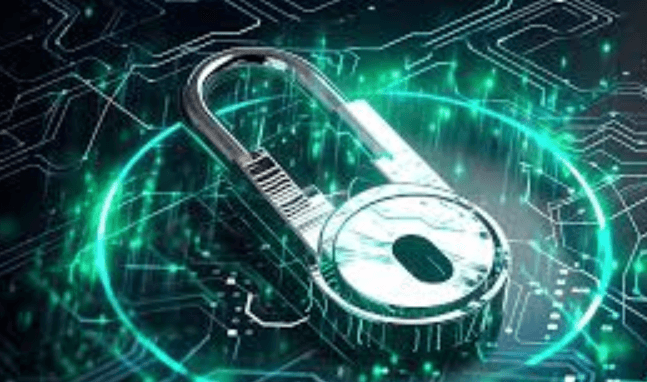The Vital Role of Ethical Hacking in Strengthening Cybersecurity

In the vast expanse of the Internet, cybersecurity is the guardian of privacy, data, and trust. Amid evolving cyber threats, the proactive, defensive practice of ethical hacking plays a crucial role. Ethical hackers, sometimes known as ‘white hats,’ act as the immune system in the digital body, diligently seeking out weaknesses and shoring up defenses before attackers can exploit them. Engaging in whitehat security practices is no longer optional. It’s a necessary strategy for organizations seeking to protect their resources in an increasingly hostile digital environment.
Key Takeaways
- Ethical hacking is fundamental to cybersecurity, identifying and fixing vulnerabilities before they can be exploited.
- Understanding the ethical hacker’s mindset helps demystify their crucial role in information security.
- Ethical hacking careers are essential and growing in demand with the ever-changing digital threat landscape.
Introduction
The cyber-world is a battlefield where defenders are constantly at work to safeguard digital assets from those with malicious intent. In this digital era where data breaches are commonplace, the role of ethical hackers has become more significant than ever. These diligent cybersecurity experts employ their skills to identify and rectify security vulnerabilities, thus pivotal in protecting sensitive information and infrastructure.
Understanding Ethical Hacking
Ethical hacking is the authorized practice of bypassing system security to identify potential data breaches and threats in a network. The company that owns the system consents to the probing. This practice is akin to a planned immunization for a computer system, strengthening the system’s defenses against actual ailments or, in this case, attacks. Ethical hackers have a complex blend of computer forensic skills and creativity. They think like hackers to beat hackers at their own game but always operate within legal confines and ethical guidelines.
Ethical Hacking vs. Black Hat Hacking
The distinctions between ethical hacking and its malicious counterpart, black hat hacking, are critical. Black hat hackers search for and exploit weaknesses for personal gain or other nefarious reasons without the consent of the network owner and often with harmful intentions. Meanwhile, ethical hackers aim to find and fix these vulnerabilities to prevent black hat attacks. It is a game of cat and mouse, where the white hats use similar tools and knowledge as the black hats to reinforce the security of the organizations they serve. Their role is often misconstrued due to the general stigma around ‘hacking,’ but they are protectors of the digital ecosystem.
Read also Innovative Wall Panel Designs for Modern Living Spaces
The Process of Ethical Hacking
The approach to ethical hacking is systematic and mirrors traditional security assessments. For ethical hackers, assessments begin with planning and surveying, gathering information about targets, akin to casing a structure before it’s built. They scan and test the perimeters for any vulnerable points of entry. Then, in a controlled manner, ethical hackers may attempt to breach these defenses. This simulated attack sheds light on the efficacy of existing security measures and reveals areas for improvement. The art lies in breaking in and recommending robust defenses post-assessment to prevent actual attacks.
The Benefits of Ethical Hacking
Beyond the apparent role of defending against cyber threats, ethical hacking creates an environment of constant vigilance and improvement regarding cybersecurity practices. One of the significant benefits of moral hacking is the early identification of vulnerabilities that malicious hackers could exploit. In doing so, ethical hacking preempts potential financial losses and helps safeguard an organization’s reputation. Moreover, adherence to cybersecurity standards, often mandated by various regulatory bodies, can be ensured through rigorous ethical hacking protocols. It strengthens customer trust and can be a significant competitive advantage in the business landscape.
The White Hat Arsenal – Tools and Techniques
The ethical hacker tools are complex and varied, chosen to match the sophistication of black hat hackers. Programs that test penetration, or ‘pen-tests,’ web application attack software, and code scanning tools are just the tip of the arsenal available to ethical hackers. They may also employ social engineering techniques to identify ‘human’ vulnerabilities – the tendency for people to be the weakest link in security chains. An ongoing challenge for ethical hackers is to stay a step ahead by continually enhancing their toolkit with the latest technology, ensuring they can counter the evolving threats presented by malicious hackers.
The Landscape of Ethical Hacking
Today’s cybersecurity landscape is witnessing a skyrocketing demand for skilled, ethical hackers. Data breaches are becoming more complex and widespread, making the role of an ethical hacker integral in business operations across various sectors. Industries, from healthcare to finance and retail to government, all require the expertise of ethical hackers to protect sensitive information from being compromised. This rising need has led to an increase in both attention and resources dedicated to the development of ethical hacking skills and methodologies.
Building a Career in Ethical Hacking
Becoming an ethical hacker often begins with an intense curiosity about computer systems and a passion for problem-solving. Those intent on entering the field typically hone their knowledge through education, practical experience, and certifications like the Certified Ethical Hacker (CEH) offered by various cybersecurity institutes. This journey involves much more than understanding code and IT infrastructure; it’s about nurturing a persevering mindset and a dedication to lifelong learning. As cybersecurity threats continue to evolve, so too must the skills and approaches of ethical hackers.
Ethical Hacking Success Stories
The impact of ethical hacking is seen in numerous success stories where potential crises were averted thanks to timely intervention. For instance, ethical hackers have been pivotal in stopping ransomware attacks, preventing unauthorized access to customer data, and even thwarting cyber espionage attempts. These unsung heroes’ valuable input ensures organizations can operate safely and with confidence in their cybersecurity measures. Their success is a testament to their indispensable role in the ongoing battle against cyber threats.




